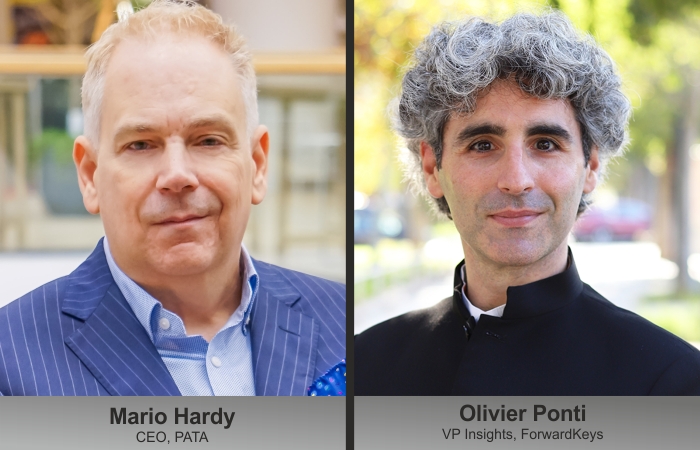At PATA India Chapter’s webinar ‘Tourism, the economic PowerHouse in an evolving landscape’, Mario Hardy, CEO, PATA, assessed the potential risk that opening of air travel bubbles could pose to the citizens of the destination, while also sharing a useful tip for agents.
Nisha Verma
Mario Hardy is of the opinion that while travel bubbles and green corridors are a great idea, there is a lot of complexity involved in setting them up. It is not a simple task! “There are bilateral agreements involved between the two countries. It’s not only the immigration department involved, but also health departments and ministries of health of the respective destinations. However, the two countries need to agree to have enough trust in the healthcare system of the other to allow people to travel across their borders. For any head of the country, the first duty is to protect its citizens, hence, not risk bringing people from overseas into their country to infect and overflow their own healthcare system. It’s as much of a health crisis as an economic crisis. The question is: health over economic sustainability or go the other way? Thus, opening a bubble is a question of assessing the risk for travellers as well as citizens,” he explained.
Roadmap to restart
Hardy claims that there are innumerable discussions happening not just across different sectors within the tourism industry but also within different international organisations. “At the very start of the crisis, a collaboration or cooperation between all the international organisations had begun. Every Monday, over 20 travel and tourism organisations, including WTTC, IATA, ICAO, CLIA, PATA, European Travel Commission, Airports Council International, etc., get on a call and update each other on their respective activities, agree on certain standards of the protocols moving forward, and how to approach respective governments and constituent members,” he shared, adding, “Information regarding protocols is important to be shared with travellers by tour operators. They apply to everyone, and if you don’t share that information with the potential traveller, you will lose them to your competitor who has that information.”
Way forward for India
Hardy suggested that the most critical thing for the country is to have the situation under control and be able to reduce the number of daily cases of COVID-19. “Bringing it to a bare minimum number would allow people to tolerate the risk. Then the country must apply protocols. Once that is achieved, one can start rebuilding confidence by promoting how protocols are in place to ensure that people travelling to India will remain safe through their journey,” he shared.
Recovery is far, but not too much
While travel trends globally are on a decline owing to COVID-19, Olivier Ponti, VP Insights, ForwardKeys, speaking at the PATA India Chapter webinar, shared that some markets in South Asia are opening, while others are still struggling to manage the number of COVID cases and hence are not in the travel radar yet. Going by recent analysis by ForwardKeys, South Asia has been significantly less impacted and most of the countries in the region are, on an average, 50-60 per cent behind 2019 levels. However, with most countries in the region still in lockdown has created an issue for the travel ecosystem as a whole because it also means that the number of key source markets for other destinations have not opened for business either.
Domestic India leads
According to Ponti, since there is little to expect at the moment on the international travel front in India, focus is on the domestic market. “There were some positive signs in the Indian domestic market which started to bounce back in the beginning of May, that were neither spectacular nor linear. It is around 10 per cent of 2019 levels, which means that there are people flying again,” he shared.
Since not much is expected from Q3, says Ponti, their focus continues to be on Q4. “Since travel restrictions are mostly in government hands, the tourism sector, apart from lobbying, cannot do much,” said Ponti, adding, “In a situation where every travel business is short of cash, there is a need to invest money in the right place at the right time. In such a situation, data can help make the right decision by making good use of information.”
 TravTalk India Online Magazine
TravTalk India Online Magazine








